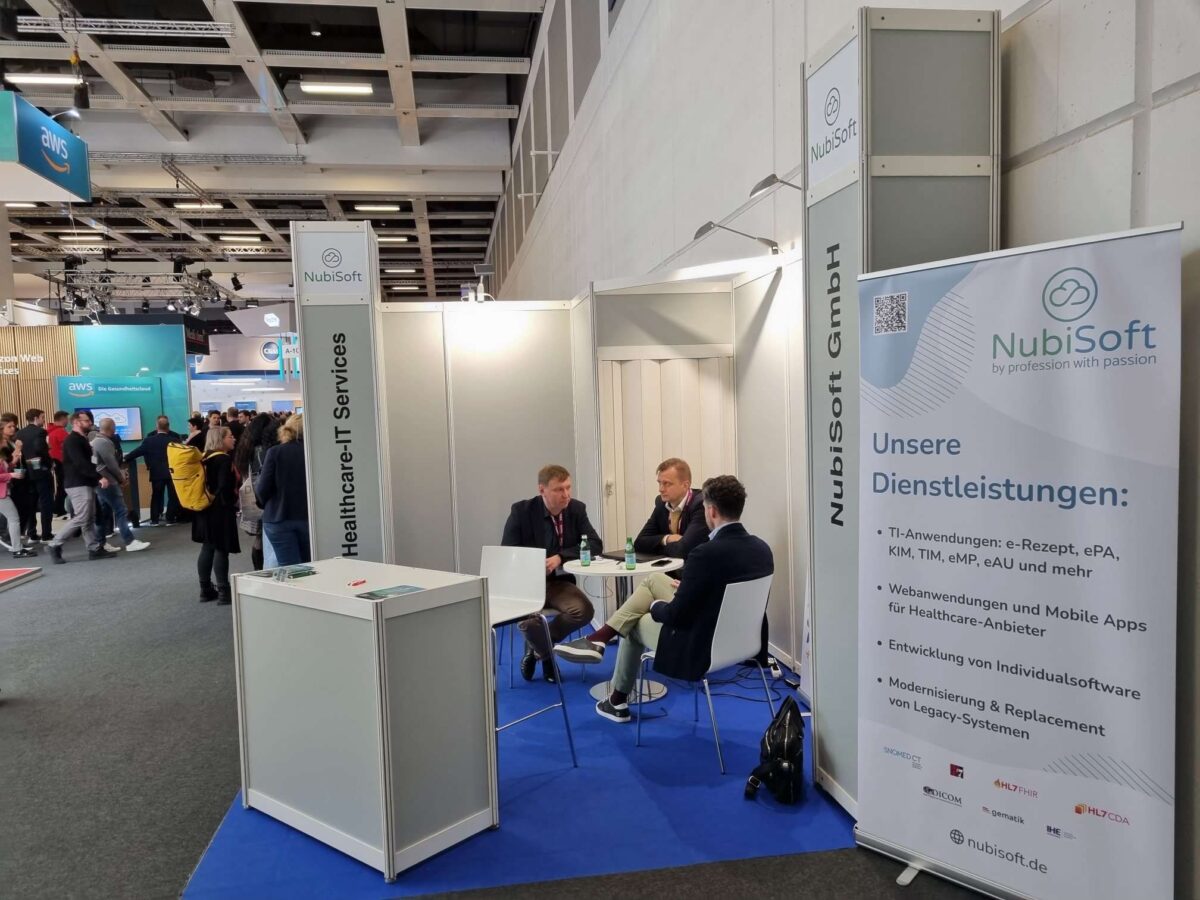What a busy two days!
April 25-27 – DMEA trade fair in Berlin. Thank you all for the meetings, exchange of experiences, and enthusiasm, which I am convinced will turn into many joint projects. The past week has been a time of analysis, planning, and chalking out directions for the development of NubiSoft’s competence in Healthcare software.
DMEA is an excellent opportunity to learn about the Healthcare software offered on the German market and its development trends. For me, a comparison to the development of systems in the Polish market naturally comes to mind. Having participated in the digitization of health care in Poland for more than twenty years, i.e. practically from the beginning of this process, I have always been impressed by the pace of development of this sector – formal requirements for statistical and billing reporting, electronic exchange of information with the payer’s system, the publication of open standards for information exchange, and finally the construction of medical e-services, including e-ZLA, e-prescription, e-referral and the implementation of electronic medical records (EHR) are factors that have forced the construction of modern central systems, as well as the implementation of advanced solutions in medical facilities (read more on our achievements in this area in this blog post). Through the widespread implementation of e-services, Patients have become an important stakeholders in IT solutions, which is the impetus for the implementation of modern, widely available online and mobile solutions.
The organization of healthcare systems in Germany, compared to Poland, is much more evolutionary. The processes of billing/reimbursement of services rendered and the processing of standardized medical records were implemented as early as the 1980s, and emerging IT systems were designed to optimize them. Digitization of these processes was usually an alternative path for their implementation, which allowed for thorough testing of implemented systems, adapting them to the specifics of individual medical specialties, and deep verification against user expectations. This approach led to the development of many process-mature systems, perfectly adapted to the functional requirements, but, looking from today’s perspective, burdened with rather significant technological debt.
We can also observe the evolutionary nature of systems development today, in the construction of medical e-Services. In the projects of e-prescription, electronic medical records, or communication systems, a strict approach was adopted to security principles, including user authentication and authorization of access and data transmission (read how e-prescription actually works in this post). The use of cryptoprocessor cards of medical personnel and physical devices that are connectors to the infrastructure that processes medical information was assumed, which poses certain limitations to the creation of modern Internet systems implemented in the cloud.
My impression is that the Healthcare software market in Germany, although heavily regulated by required software certification, is highly competitive, demanding in terms of meeting user expectations, and quite conservative in terms of productive use of technological innovations. However, the accelerating IT revolution, and the need to further optimize treatment processes, including the use of digital medical information and its analysis, will certainly force the rapid development and modernization of existing systems – a new challenge for me. I am convinced that by combining experience and fascination with new technologies at NubiSoft, we can offer many interesting solutions and be a permanently active entity also in the German market, and the future support the standardization of medical data exchange in the European Union.
